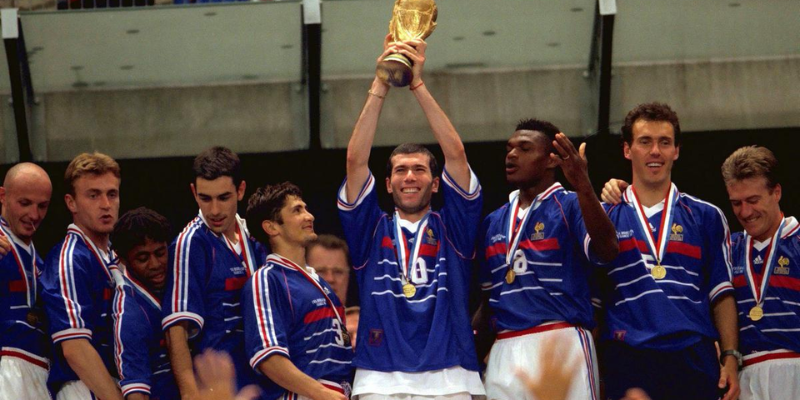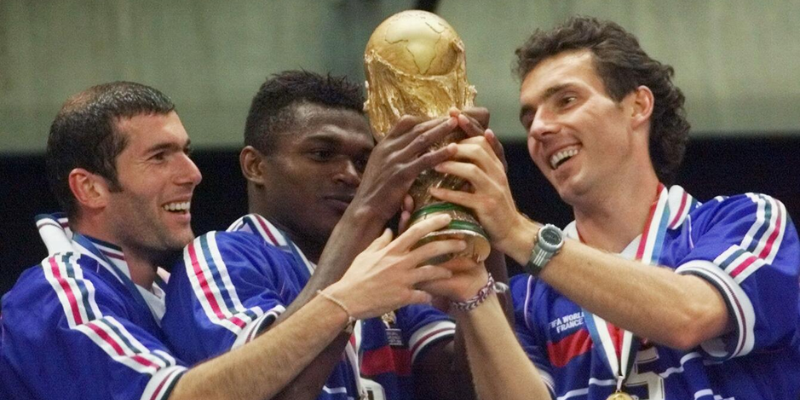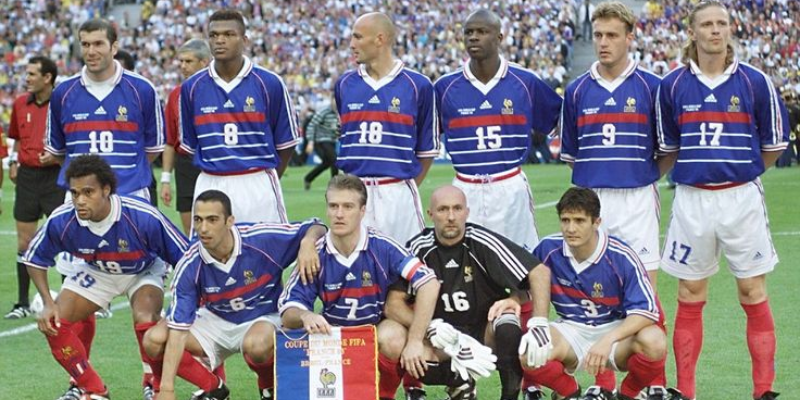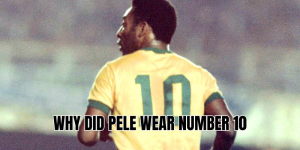When people ask why Zidane left World Cup, they’re usually wondering what pushed Zinedine Zidane to retire after the 2006 World Cup, and how that dramatic exit unfolded. Below, FreeKickSEO will guide you through the real reasons behind his decision, the context in which it happened, and how the world responded.
The 2006 World Cup final: Last match

The dramatic ending of the final against Italy cemented Zidane’s departure.
- He scored early in the final—famously chipping a penalty in the 7th minute.
- But in extra time, after verbal exchanges with Marco Materazzi, Zidane head-butted him. Referee Horacio Elizondo, following consultation, sent Zidane off in the 110th minute.
- France lost the final in a penalty shootout to Italy. That red card was the final act of Zidane’s playing career.
This sequence made that match not just another big game, but the end of a legendary journey. Zidane had been clear beforehand: 2006 World Cup is his last major stage. The red card didn’t cause his exit—his retirement plan already decided; it just shaped its unforgettably dramatic ending.
Reasons behind his planned retirement

To fully answer why Zidane left World Cup, we must examine the internal and external reasons for retiring when he did.
Physical demands and aging
- Zidane was 34 during the 2006 World Cup—an age when most elite playmakers begin feeling the strain. He admitted that recent seasons had seen a drop in his physical condition and form, something he was deeply aware of.
- Injuries, recurring fatigue, and less ability to recover quickly—all natural for someone nearing the twilight of an illustrious career. He didn’t want to continue if he couldn’t be at his best.
Desire to bow out on own terms
- Zidane wanted the World Cup—and especially the final—to be a stage to end things, not some later club match. He publicly said “the World Cup is my last goal,” showing he saw this tournament as the fitting farewell.
- He had already declared retirement, his decision carried more weight—and he made it final.
Emotional and legacy considerations
- Zidane has always been a player deeply driven by pride, artistry, and being remembered well. The idea of continuing without matching the heights of previous seasons didn’t appeal to him—instead, he seemed to prefer ending while respected, not because he was past it.
- The dramatic final, with its highs and painful lows, guaranteed that his legacy would be forever etched—not just for what he achieved, but also for the emotional intensity he carried even in his last moments.
Misconceptions about “why Zidane left World Cup”

Fans sometimes misunderstand or misstate the reasons. Here are a few clarifications:
- It wasn’t because of one moment: The headbutt in the final is often cited as “why he left” but it’s more literally how his final match ended. His retirement was decided before the tournament.
- Not forced out by the team or coach: There’s no credible evidence that Zidane was pushed out by France or Real Madrid. He chose to stop, not because he was dropped.
- Not just emotional burnout: While passion, stress, and public pressure were factors, physical decline and the sense that he could no longer meet his own standards played at least equal part.
What retirement meant for Zidane and France afterward
For Zidane himself
- Retirement meant stepping away from professional matches entirely; no more Real Madrid, no more Les Bleus. He viewed this World Cup as the “last goal.”
- Post-retirement, he eventually moved into roles beyond the pitch—coaching, management, mentorship, etc. His influence continued.
For France and the footballing world
- France lost a leader, a creative force, someone who had become the emotional core of their team. His absence in later tournaments was feltth in terms of skill and leadership.
- For fans, the final’s end was a bittersweet farewell: pride in what he gave; disappointment in how it ended.
Timeline: Key dates in Zidane’s exit
To clarify the chronological flow:
- 2004: Zidane retires (or attempts to).
- 2005: Persuaded to return to help France qualify for 2006 World Cup. Becomes captain again.
- Early 2006: Publicly announces that 2006 World Cup will be last tournament; that he’ll retire.
- July 9, 2006: Plays in World Cup final vs Italy. Scores a penalty, then is sent off after headbutt in extra time. France loses on penalties. That becomes his final professional match.
Why Zidane’s exit still matters
The story of why Zidane left World Cup isn’t just about one match or one player quitting. It’s about:
- A superstar choosing dignity: He didn’t wait for form or public opinion to force his hand; he decided when he thought it was time.
- The drama of his last act: The world already knew it would be his final match, so the headbutt, the red card, the loss—they added layers of human emotion to the finale.
- Legacy defining itself in that exit: Even in the error, Zidane’s passion, intensity, and complexity were on full display. It made his legacy more vivid, more memorable.
Conclusion
Why Zidane left World Cup boils down to a mix of physical reality, personal pride, and planned exit strategy. Zidane had already made up his mind before the 2006 World Cup: age, declining form, and desire to leave still respected all played their parts. His final match—the score, the penalty, the red card—was the dramatic punctuation of a legendary career.
If you want, FreeKickSEO can also pull up detailed stats from Zidane’s 2006 performances, quotes. Would you prefer me to dig into those?






